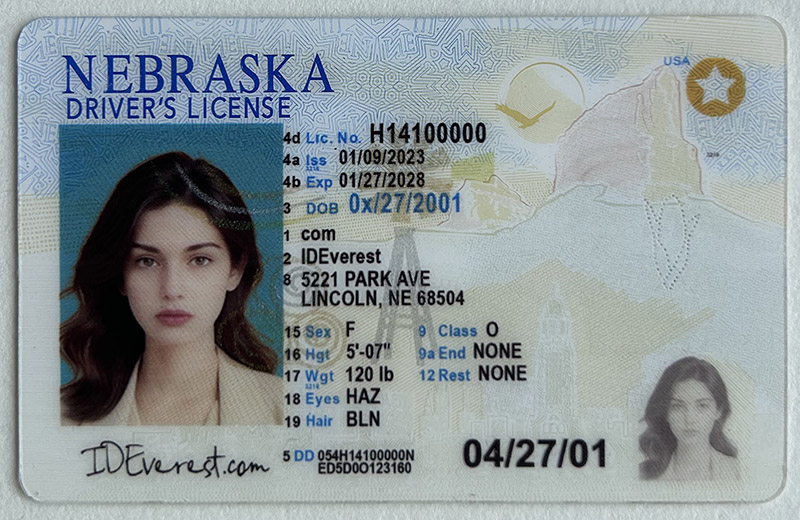Scannable Fake ID
Scannable Fake IDs: The Innovative Guide to Digital Identity Solutions
Introduction: The Role of Scannable Fake IDs in the Modern World
In today's digital age, the demand for identification technology has evolved rapidly. From personal security to seamless digital transactions, individuals and businesses alike are relying on more sophisticated forms of ID. Among the latest developments in this realm is the Scannable Fake ID—a product that offers convenience, innovation, and utility in a variety of settings.
Chapter 1: Understanding Scannable Fake IDs
1.1 What is a Scannable Fake ID?
A Scannable Fake ID is a digitally designed identification card that mimics real government-issued IDs. What sets it apart from traditional fake IDs is the embedded scannable barcode or magnetic stripe that can be read by scanning devices, adding an extra layer of authenticity. These IDs often include personal data, photographs, barcodes, and holographic elements, making them harder to distinguish from legitimate IDs.
1.2 The Evolution of Fake IDs: From Basic Fakes to High-Tech Scannables
Historically, fake IDs were simple, printed cards used to bypass age-restricted regulations, especially for purchasing alcohol or entering nightclubs. Over time, as scanning technology became widely adopted in bars, clubs, and businesses, traditional fakes became obsolete. The rise of scannable fake IDs emerged from a need to outsmart scanning devices, leading to a new wave of high-tech fakes that include barcode replication and magnetic stripe encoding.
Chapter 2: Features of Scannable Fake IDs
2.1 Advanced Scannable Technology
One of the main selling points of scannable fake IDs is the integration of barcodes and magnetic stripes. When a scanning device reads the card, it registers the data encoded in these elements. This feature gives these fake IDs an added layer of authenticity, as they pass through most verification checks that involve electronic scanning.
Barcode Encoding: The barcode contains vital information such as name, age, and license number. By replicating real-life formatting, scannable fake IDs can fool most commercial scanners.
Magnetic Stripe: Similar to bank cards, these IDs often feature a magnetic stripe, which contains encoded data that can be read by magnetic readers used in various establishments.
2.2 High-Quality Replication of Government-Issued IDs
Scannable fake IDs replicate the layout, fonts, and security elements (such as holograms) of genuine IDs. They often include:
Holograms: Embedded holographic elements that reflect light similarly to real government-issued IDs.
UV Elements: Some high-quality fakes include ultraviolet ink, which can only be detected under blacklight, mimicking the security features of real IDs.
2.3 Customization Features
Another notable characteristic of scannable fake IDs is their high degree of customization. Users can select the state, license number, and even the age they want to display. In some cases, users can also opt for specific security features like microprinting or signature replication.
Chapter 3: The Market for Scannable Fake IDs
3.1 The Demand for Scannable Fake IDs
The scannable fake ID market primarily targets young adults, typically college students, who want access to age-restricted activities. However, there is also a market for people who wish to remain anonymous for privacy reasons. The demand for these fake IDs can be linked to multiple factors, including:
Age Restrictions: The primary audience for these products remains individuals looking to bypass age restrictions for purchasing alcohol or entering nightclubs.
Privacy Concerns: With increasing concerns about data privacy, some individuals are drawn to fake IDs to maintain anonymity in certain transactions.
Travel: Some individuals use fake IDs for domestic travel, particularly when they do not have access to their real identification.
3.2 Global Market Trends
While the market for fake IDs is traditionally seen as niche, it has grown significantly, especially in countries like the United States, Canada, the United Kingdom, and Australia, where age restrictions on alcohol and certain substances are strictly enforced.
Chapter 4: Target Audience for Scannable Fake IDs
4.1 Young Adults (18–25)
The most obvious group of users are young adults looking to bypass age-related laws. This group primarily uses fake IDs to gain access to bars, clubs, and events restricted to those over 21 in countries like the United States.
College Students: A significant proportion of users are college students seeking to access social venues, events, and alcohol.
Young Travelers: Some young adults use fake IDs during travel to book hotels or gain entry to restricted locations.
4.2 Privacy Advocates
There is a growing group of people who use scannable fake IDs to protect their personal data. These users are typically older and more concerned about digital privacy.
4.3 Specific Use Cases:
Different scenarios in which people may consider obtaining scannable fake IDs include:
Nightlife Access: Bars, nightclubs, and music festivals that enforce strict age policies.
Travel and Accommodation: Domestic travel or hotel bookings for individuals without easy access to legitimate identification.
Online Anonymity: Some users might seek fake IDs to register for websites or services that require age verification without disclosing real information.
Chapter 5: Legality and Ethical Considerations
5.1 Legal Implications of Using Fake IDs
Despite their advanced features, scannable fake IDs are illegal in most countries. Using or creating a fake ID can lead to serious legal consequences, including fines, community service, or even jail time in extreme cases.
United States: In the U.S., possessing a fake ID is a misdemeanor, and in some states, penalties can be severe, especially if the ID is used to purchase alcohol.
Canada and the U.K.: Similar legal restrictions exist in Canada and the U.K., with strict penalties for both the use and production of fake IDs.
5.2 The Ethical Debate
The ethical implications of using scannable fake IDs extend beyond legality. Using these IDs to access age-restricted services poses moral questions about underage drinking, privacy violations, and fraud. This section will explore these ethical considerations in-depth.
Chapter 6: Alternatives to Fake IDs
6.1 Digital ID Solutions
As technology advances, more secure and legitimate alternatives to scannable fake IDs are emerging. These alternatives focus on digital identity verification using smartphones and biometric data.
Mobile IDs: Several governments and organizations are piloting mobile ID programs that store identification on smartphones, reducing the need for physical cards.
Biometric IDs: The future of identification may rely on biometric technologies, such as facial recognition and fingerprint scanning, making it harder for fake IDs to be effective.
6.2 Legal Ways to Protect Privacy
For privacy advocates, legal ways to protect personal information include using encrypted services and data anonymization tools. This section will explore alternative solutions for individuals concerned about data privacy without resorting to fake identification.
Chapter 7: The Future of Scannable Fake IDs
7.1 How Technology Could Impact Fake IDs
As identification technology evolves, so too does the fake ID industry. The future may see scannable fake IDs becoming even more sophisticated, using 3D printing, AI-generated images, and enhanced encryption to bypass security measures. However, advances in biometric verification and AI-powered scanning devices may eventually render fake IDs obsolete.
7.2 Shifts in Legal Enforcement
Law enforcement agencies are increasingly using technology to detect fake IDs. This section will delve into how governments and businesses are leveraging AI and machine learning to catch fake IDs more effectively, as well as what future legal policies might look like.
Chapter 8: Conclusion
8.1 Final Thoughts on Scannable Fake IDs
In conclusion, while scannable fake IDs offer high-tech features that make them appealing to specific groups, they come with legal and ethical risks that cannot be ignored. With the rise of biometric identification and enhanced security measures, the market for these fake IDs may shrink, but for now, they remain a sought-after tool for bypassing certain restrictions. It's crucial for consumers to weigh the risks and explore legitimate alternatives for their needs.
Creative Title Ideas:
- "Scannable Fake IDs: Unveiling the Technology Behind Digital Identity Fraud"
- "The Rise of Scannable Fake IDs: A Double-Edged Sword in the Digital Age"
- "Scannable Fake IDs: How They Work, Who Uses Them, and the Legal Risks"
Creative Description Ideas:
- "Explore the world of scannable fake IDs, the technology that drives them, and the ethical and legal dilemmas they present in today's identity-driven society."
- "Delve into the high-tech realm of scannable fake IDs. From features and target markets to their future in a world of advancing security, this guide covers it all."
 How Bouncers and Bartenders Sp
How Bouncers and Bartenders Sp
 Nebraska's New Driver's Licens
Nebraska's New Driver's Licens
 Advances in Technology Anti-Co
Advances in Technology Anti-Co
 What are the benefits of a fak
What are the benefits of a fak